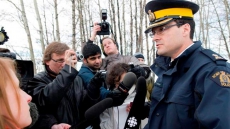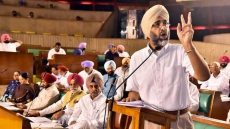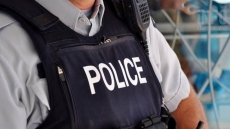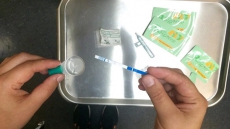TORONTO — The federal government has apologized to former Guantanamo Bay inmate Omar Khadr and, sources say, paid him $10.5 million to settle his long-standing lawsuit over the violations of his charter rights.
Canadian Press reporter Colin Perkel talked to Khadr about the settlement and the widespread anger it has engendered:
Q: What do you say to those Canadians who view you as an unrepentant terrorist who deserves no mercy, let alone an apology and compensation?
A: I'm not a hardened terrorist bent on doing anything. But they don't have to believe what I say. Look at my actions. My past: I'm not excusing it, I'm not denying it. We all do things that we wish we could change. All I can do right now is focus on the present and do my best to become a productive member of society, a good person, a good human being. Look at my actions and judge me on that.

Q: How do you react to those who say you're now profiting from a criminal past?
A: I can't discuss any details of the settlement but I don't look at this as profiting. This is not a time for profit or for gaining or for thinking, 'I hit the jackpot.' This is a time for remembering. It's a time of reconciliation. This is a time for healing and it's not about forgetting. I'm sorry if this is causing people pain. I'm trying to turn a page. Not to forget that page, but just trying to turn a page and move along.
Q: Do you think you deserve an apology from the Canadian government on behalf of Canadians?
A:I don't look at it in a way that I deserve it. It's not a matter of deserving. It's a matter of trying to find the best way where we can reconciliate what happened and move forward in a way that is going to be healthy for everybody.
Q: What does the government's apology mean to you?
A: The good thing about this apology for me is that it's going to restore a little bit of my reputation here in Canada. It's been a struggle to find jobs. People see you with that past reputation. An apology helps people say, 'We acknowledge the past.' Maybe that will give people an opportunity to give me a chance and think there might be more than what is said in the media.

Q: You're close to your family, some of whom have angered Canadians by expressing in years past pro-al-Qaida sentiments. How do you reconcile that?
A: It would have been easy for me to be very upset and frustrated with my family with what they said. But my frustration and anger is not going to change what they said. I'm not excusing what they said. I'm not justifying what they said. All I'm trying to do right now is explain that they were going through a hard time. This is not an excuse but it's an explanation. They said things out of anger or frustration.
Q: Some might say you're trying to sweep the past under the carpet?
A: How are we going to see what's ahead of us and move forward, if all we can see is the past? Not forget. This is how I survived: I tried to focus on the things I can change. All I can do right now is try to become the best person I can.
Q: What's next for you?
A: I want to finish my nursing program. I want to work as a nurse somewhere it's needed. I want to be able to use my languages and my ability as a nurse to relieve people from pain. I have a lot of experience with pain and I have an appreciation of pain. With my past, I don't know who's going to be comfortable with hiring me.

Q: Would you like now just to fade into the background?
A: Definitely. I just want to be the next person on the road that you don't look twice at. Listen, I want to be in a place where I don't have any more legal cases, I don't have any prison time. I just want to be a normal person who doesn't have to worry about going to court. Hopefully, eventually, it will come.
Omar Khadr was first abused by his family. Then by the American govt. Then by the Canadain govt. And now by bigots & racists.
— Maher Arar (@ArarMaher) July 7, 2017
A look at the long legal odyssey of Canadian-born Omar Khadr:
July 27, 2002: Khadr, 15, allegedly throws grenade that kills United States Sgt. 1st Class Christopher Speer during an American attack on a compound in Afghanistan. A badly wounded Khadr is taken prisoner.
October 2002: Khadr is transferred to Guantanamo Bay.
February 2003: Investigators from the RCMP and Canadian Security Intelligence Service interview Khadr at Guantanamo.
Aug. 10, 2005: Federal Court judge says Canadian agencies, including CSIS, violated Khadr's rights by giving information from interviews with him to U.S. investigators.

Nov. 7, 2005: The U.S. military charges Khadr with conspiracy, attempted murder and aiding the enemy.
March 17, 2008: Khadr alleges he was threatened with rape and violence by interrogators seeking a confession.
May 23, 2008: The Supreme Court of Canada concludes Canadian officials illegally shared information about Khadr with the U.S.
Aug. 14, 2009: The Federal Court of Appeal upholds a ruling requiring Ottawa to press for Khadr's return from Guantanamo Bay.
Jan. 29, 2010: The Supreme Court overturns court orders that the Canadian government should repatriate Khadr, despite agreeing his human rights were violated.
Aug. 9, 2010: Khadr pleads not guilty to five war crimes charges, including murder. Judge Col. Patrick Parrish rules Khadr's confessions admissible.
Oct. 25, 2010: Khadr changes his plea to guilty on all five counts; gets opportunity to apply for a transfer to a Canadian prison after one more year at Gitmo.

Oct. 31, 2010: Khadr is sentenced to 40 years in prison but pre-trial deal limits sentence to eight more years.
April 2012: U.S. defence secretary signs off on Khadr's transfer.
Sept. 29, 2012: A U.S. military airplane brings Khadr to Canada. He is sent to Millhaven Institution near Kingston, Ont.
April 28, 2013: Khadr's lawyer says he plans to appeal his convictions.
May 28, 2013: Khadr is transferred to the maximum security Edmonton Institution.
Sept. 23, 2013: An Edmonton judge hears arguments on whether Khadr is serving a youth sentence and should be in a provincial jail.
Oct. 18, 2013: Khadr is denied transfer to a provincial jail.
Feb. 11, 2014: Khadr's lawyer confirms his client's move to medium-security Bowden Institution near Innisfail, Alta.
July 8, 2014: Alberta's Appeal Court allows Khadr to transfer to a provincial jail but his lawyers consent to a stay of the ruling.
March 26, 2015: Khadr asks for bail pending his appeal in the U.S. of his war-crimes conviction.

April 24, 2015: Alberta judge grants Khadr bail.
May 14, 2015: The Supreme Court rejects government efforts to have Khadr ruled an adult offender and says he should be in a provincial jail.
Aug. 19, 2015: Khadr is eligible for statutory release after serving two-thirds of his sentence as a youth.
Sept. 11, 2015: Alberta judge eases some bail conditions: Khadr's curfew is relaxed.
Sept. 18, 2015: Judge allows him to visit his grandparents in Toronto if he travels with his lawyer. He can also get rid of his monitoring bracelet.
March 2017: Khadr undergoes 19-hour operation in Edmonton on shoulder damaged during his capture in 2002.
April 2017: Khadr's official Canadian criminal record contains errors, such as referring to the military commission as "youth court," The Canadian Press reports.
July 4, 2017: Sources say the federal government will pay Khadr $10.5 million and apologize to settle his ongoing lawsuit against Ottawa.
July 7, 2017: Government publicly apologizes to Khadr. Sources say the $10.5 million payout has already taken place.




